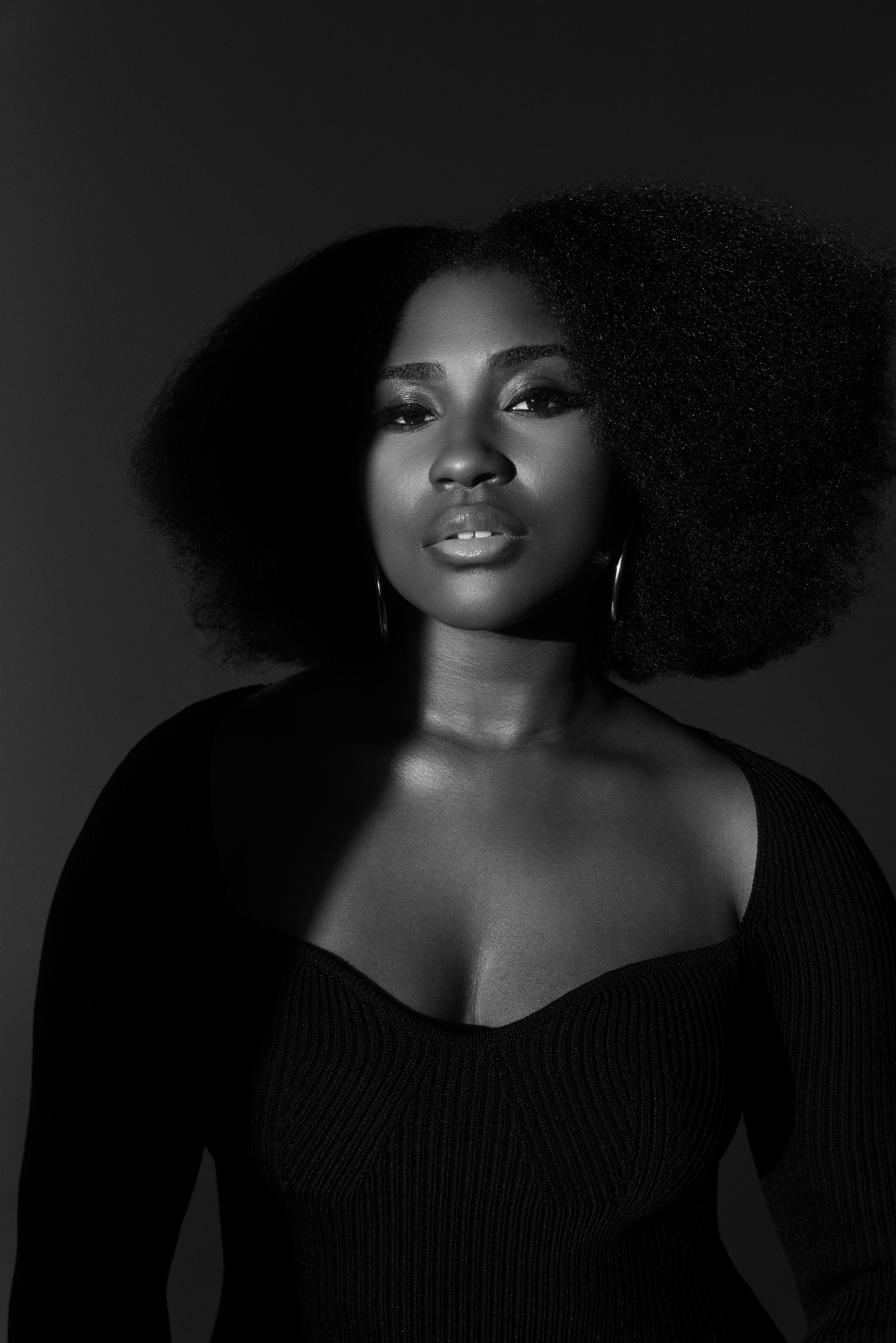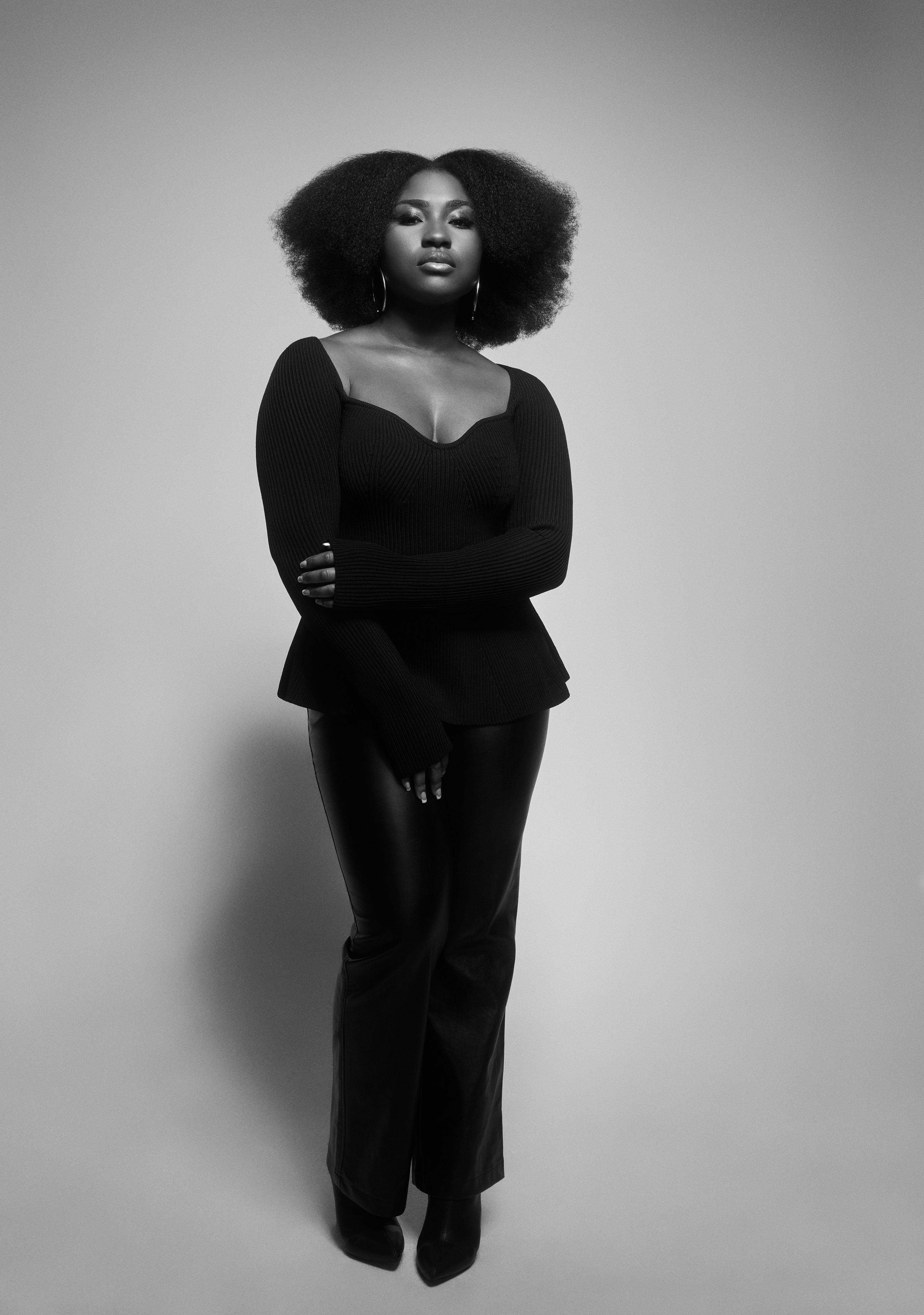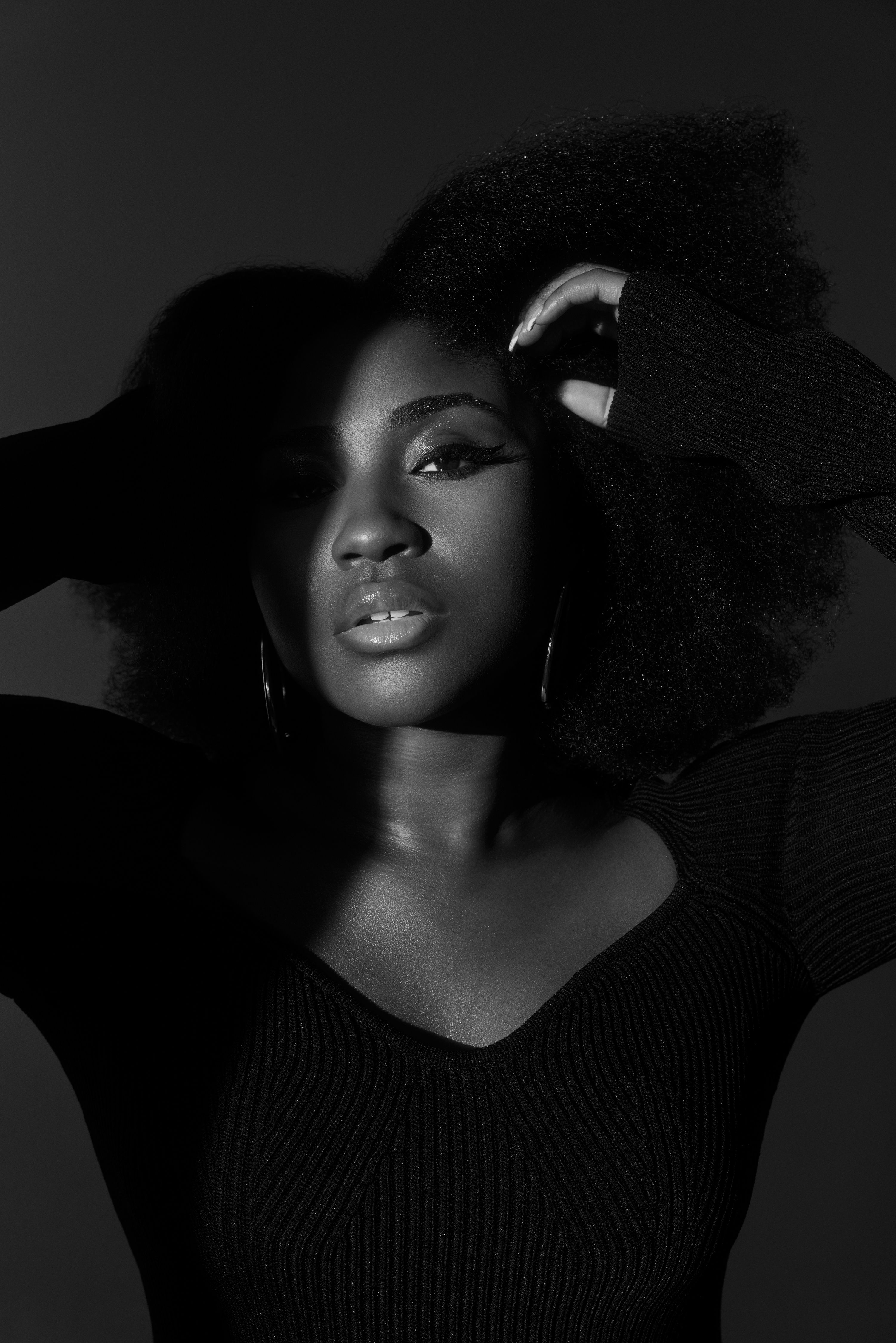
The exponential rise of South-London-born actress Lauryn Ajufo is truly something to be reckoned with. Discovered a mere four years ago at a monologue slam, the 22-year-old is currently on the big screen playing opposite acting royalty Idris Elba in Luther: The Fallen Sun – a somewhat grisly bent cop drama that picks up where the hugely successful BBC television franchise left off. It’s not bad going for a talent who first came to the attention of this writer in the utterly brilliant Boiling Point, in which she played alongside similarly respected veteran Stephen Graham as a waitress who encounters racism from the kind of customer no one should have to serve. While very short on screen time, her excellently understated supporting role in the high-octane kitchen drama was emotionally affecting enough to win her a deserved BIFA nomination. The powerful subtlety she seemed to apply so effortlessly in her métier was similarly apparent in the no-holds-barred teen drama Tell Me Everything, which spun upon the axis of a tragic event in order to shine a light on the mental health struggles of young suburbanites in the modern era. In this rare interview with Culture Collective the hotly tipped talent tells us how getting into character is a form of self-therapy, discusses the dangers of keyboard warrior culture, and explains why every day provides an opportunity to be a better version of yourself than you were the day before.
How do you approach the craft of acting and get into character?
I think most actors have their rituals when it comes to preparing for a role, but I feel like I'm pretty chill. If I've been given a role, I will read the script with all my highlighters lined up, and I'm very much an annotator. Music is also something that helps me in developing a backstory – I'll create a playlist that I think would fit the character, or the story itself, and listen to that as I'm trying to annotate through. It’s probably quite cliché to say, but I really enjoy not having to tap into my own emotions for a while, so just delving into this other character that has their own story is very therapeutic to me.
What do you mean when you say it’s therapeutic?
It's just the most relaxing thing for me as an individual, and as an actor. I get really excited when I find something new while annotating and writing, and that whole process is what I find therapeutic. Another thing that kind of helps me as an actor is to place an individual that I actually know personally in real life into the character – so, if a character is a dad, for example, I will put my dad into the scene, and that can help me find the specific emotion that is needed. I think the most complex role I have actually had to play so far in my career is probably my character in Luther – that process was quite deep for me, because there really is an emotional rollercoaster going on in that story. It was interesting to be able portray the lightness in my character’s relationship with her mother, against the quite dark background.

Do you think there is a societal value in drama? Does it reflect us back to ourselves when at its best?
I really do. When I was growing up, so many things seemed much more like teen bubblegum, but the narrative has changed so much in filmmaking now – in terms of discussing mental health, and so on. I absolutely love that, because there are so many people out there who think they are alone in their battles, but what great shows and films can do is open our eyes to the fact that people aren't alone. I’ve played a lot of teenagers, so far – and I have loved playing teenagers, so that will always have a place in my heart – but I've definitely noticed that I now enjoy playing much more complex characters; people who are trying to find themselves, and overcome emotional challenges. I strongly believe it's important to portray the average, or everyday, realities of how we all live our lives on-screen – people suffering from depression, or encountering racism, and things like that.
I feel like you did that brilliantly in Boiling Point – it was a very understated performance, but also an emotional punch in the gut …
I actually feel as though that's something that the director Phil Barantini really wanted to show in Boiling Point. He didn't want it to be blatant racism, but something subtle that happens in the day-to-day – and, actually, it really did open up a discussion, with many people questioning, is this racism? And I was like, yes it is racism, but you may not be aware of it, because it's not your world. It was actually quite a challenging role for me because, although I feel as though I've experienced racism in real life, I have not done so to that extent portrayed. So, I had to speak to people who have experienced that before, especially people who have worked hospitality. There was obviously, quite a bit of added pressure on that set in the fact that the actual script itself was more or less improvisation with a few prompt lines written in – that really did add to the hustle and bustle of it all, and what the film was seeking to portray.
What do you think is unique about your generation?
I feel like one thing that I idolize about my generation is our desire to just say what's on our mind. In my parents’ time, I feel like it was very political being a young black person, and that there were certain things you just couldn't say or do, because it might jeopardize your career. Now I feel as though many young people are much more vocal about specific things, which is brilliant. It's really about taking those people who are on a pedestal, and questioning their actions, and what they say and do. I feel like people actually are standing up for their rights much more now, especially in the black and LGBTQ communities, and I'm one hundred per cent here for that.
Do you think that polarization on social media can sometimes be counter-productive in that sense?
Yeah. And it's upsetting, because sometimes you genuinely want to have a debate or discussion about a specific topic, and very quickly it just gets personal – there are slurs, and it becomes no longer a discussion, just much more an argument. One thing that I really don’t like about social media is the whole keyboard warrior front. There’s a ridiculous sense of entitlement that I don't agree with, and it comes from this thing of being hidden behind a screen and knowing that, realistically, you're never going to see that individual – people feel they can comment on anything and everything, and often it just isn’t done right.

How would you define success?
I think success, for me, is just doing what I love and being happy with it, which is really about knowing that I've done the most I can with a specific job. As long as I know that I've worked hard, I don't really care about anything else. I'm happy if I know that I killed it. I also think success is about just trying to do things, and telling yourself not to be doubtful of everything. I don’t take anything too seriously, because I think you can always try to be a greater version of what you were yesterday. I constantly tell myself to take each day as it comes, and that tomorrow is a different day. That's kind of how I deal with life in terms of panicking about something – the question is always, is it a life or death situation? No. It doesn't matter. You have to be able to move on.
Luther: The Fallen Sun is in cinemas and on streaming services now